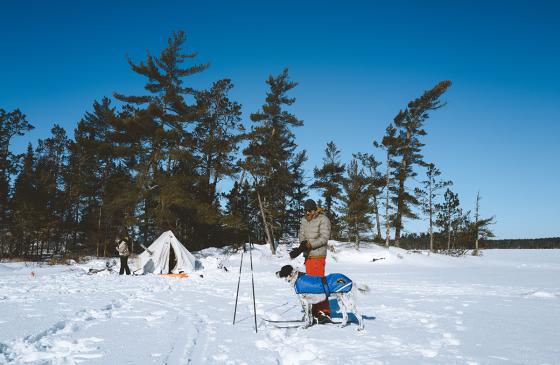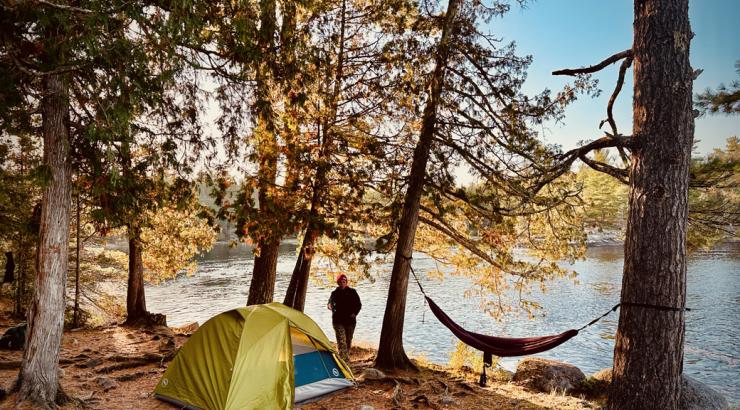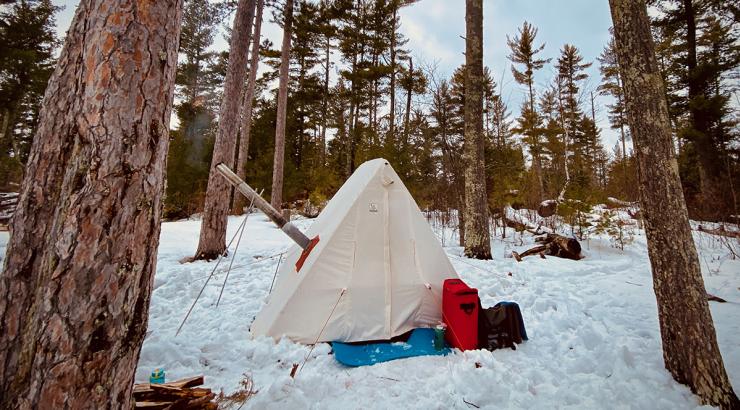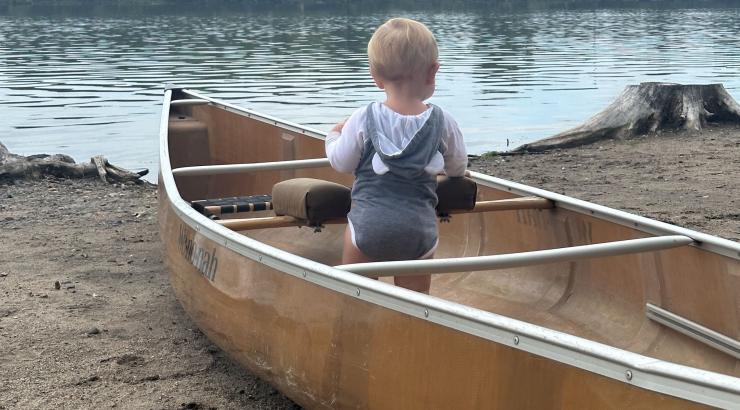Across a million acres of frozen lakes and snow-laden forest, the wilderness settles into a stillness you can only experience in winter. For adventurous outdoor enthusiasts, this time of the year offers some of the most rewarding and memorable camping opportunities. Whether you’re actively planning a winter camping trip or just starting to imagine what it might look like, this introduction will guide you through everything you need to know to prepare for the journey ahead.
Are you starting to plan winter trips to the Boundary Waters Canoe Area Wilderness (BWCAW)?
SELF-ISSUING PERMITS ARE REQUIRED
Self-Issuing Permits 101
As always, a permit is required to enter the BWCA Wilderness:
-
Self-Issued permits are required for ALL visitors from October 1 - April 30. Self-issued permits are available from kiosks at BWCAW entry point trailheads or at permit-issuing stations for off-season or day trips (no reservation required and no recreation fees).
-
Self-issued permits are required for non-motorized day-use visitors year-round and for all overnight visitors entering the BWCAW from October 1 – April 30. Self-issued permits are also required for Day Use Motor visitors from October 1 - April 30.
Things to consider
- Not all entry points are accessible in the winter
Some roads receive regular plowing while others do not. Check with the local DOT, outfitter or ranger station before heading out. - Decide on the Duration of your Trip
The first step in planning your Boundary Waters adventure is to determine how long you want to be in the wilderness. Trips range from a few days to a week or more, so consider your skill level, fitness, the distance you want to travel, and the amount of time you can take off from your other commitments. - Pick your Dates
December can vary in temps, while January and February are usually the coldest, snowiest months, but not always! March can be a great time to embark on a late-season trip, as daytime temperatures can be milder. Ice is generally reliable by the end of December; however, remember that ice is never 100% safe. Check with the local ranger station or outfitter for current ice depths or hazards. - Determine Your Entry Point
The next decision is choosing the entry point for your trip. There are numerous entry points spread across the BWCAW, each providing access to different lakes and routes. Research the different entry points using the interactive tools from Paddle Planner or National Geographic's Eastern and Western planning maps. Consider the distance you're willing to portage and decide which lakes you'd like to explore. Take into account that travel will be much slower in the winter. You don’t have to go far to find solitude.
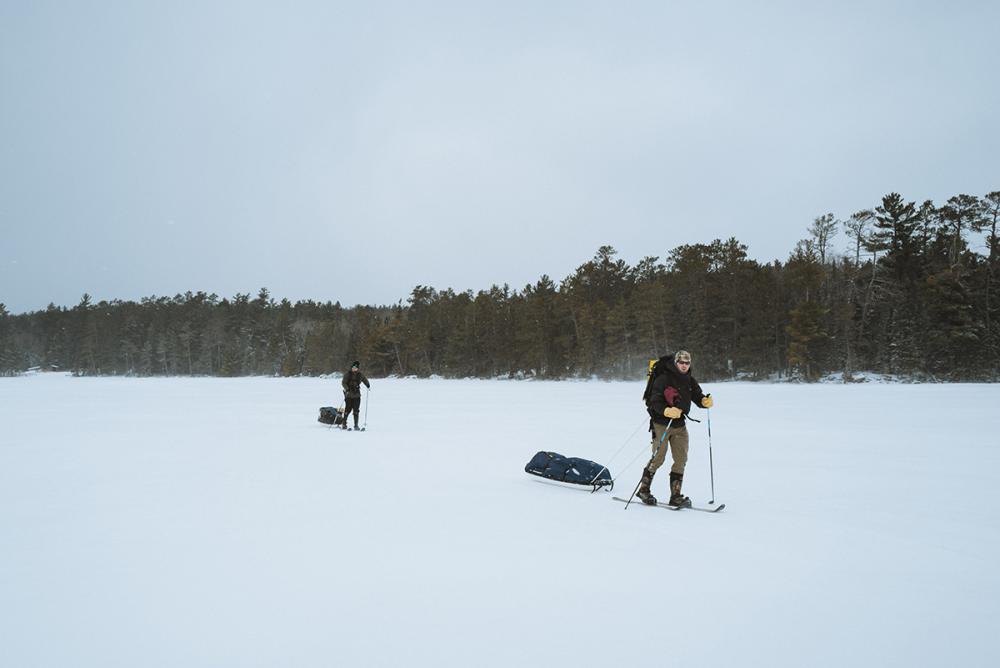
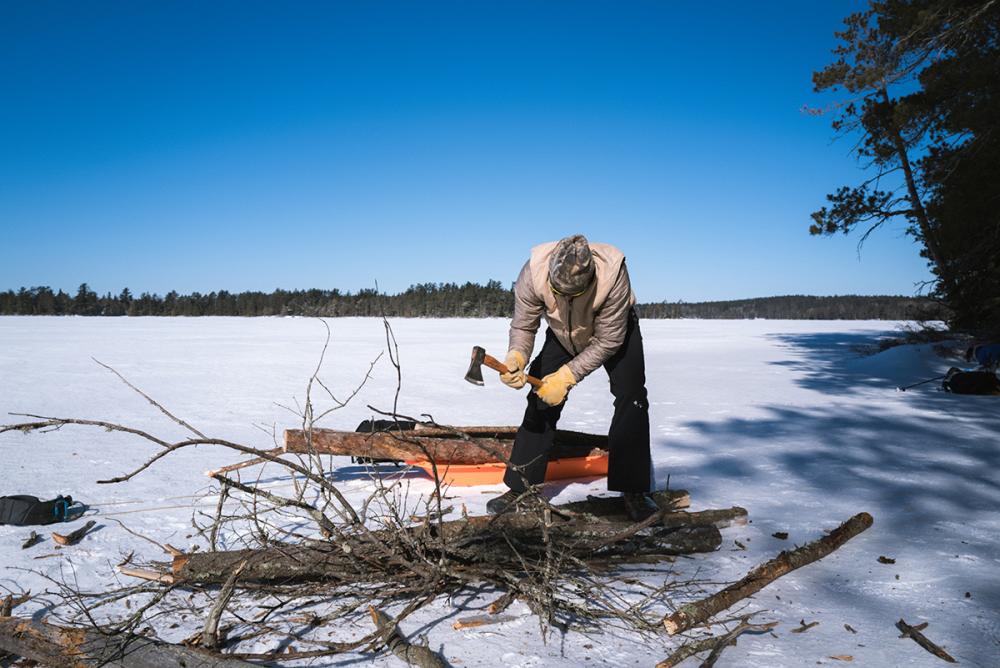
Planning your trip
Now you can plan the other details! Include everyone in your group in on the planning so they all know how to prepare and what to expect.
- Plan Your Route
Look at a map of the area and chart out your desired route, considering factors such as distance, difficulty level, and any specific points of interest. We highly recommend talking to an outfitter or using Paddle Planner! - Gather Essential Gear
Proper gear can make or break your Boundary Waters trip. You can bring your own gear or reserve winter camping gear through an outfitter, such as hot tents, stoves, backcountry skies, sleeping bags and more. See our packing list here. - Practice Leave No Trace Principles
Preserving the untouched beauty of the Boundary Waters is essential for future generations. Familiarize yourself with the seven principles of Leave No Trace: plan ahead and prepare, travel and camp on the ice if possible (pack down snow first), dispose of waste properly, leave what you find, minimize campfire impacts, respect wildlife, and be considerate of other visitors. The Boundary Waters also has some of its own unique rules like no cans or glass. Check out page 11 of this handy guide from the USFS that includes rules and more for winter wilderness travel. - Be Aware of Weather Conditions
The weather in the Boundary Waters can change rapidly, so stay informed about current and forecasted conditions. Be prepared for deep snow, wind, and varying temperatures by packing appropriate clothing and gear. Check with rangers or local outfitters for potential weather and ice hazards, and adjust your plans to ensure your safety. - Navigation Skills
Traveling through the waterways of the Boundary Waters requires basic navigational skills. If you're a novice, consider talking to your outfitter for tips or taking a navigational course to familiarize yourself with paddling techniques and safety measures. Navigation is crucial in the wilderness, so bring a compass, a map, and possibly a GPS device. - Read the ice and navigate portages efficiently.
Ice thickness and conditions can change at any time. There is usually open water year-round around waterfalls, narrow points of land, and anywhere there is moving water, like rapids. Portage trails may be hard to find and little traveled. - Wildlife Awareness
The Boundary Waters is home to diverse wildlife, including moose, bears, wolves, and more. Educate yourself on safely coexisting with wildlife. The USFS food storage order is in effect March 1-November 30 of each year. Take precautions to avoid unwanted encounters. Admire wildlife from a distance and refrain from feeding them. - Emergency Preparedness
Despite careful planning, emergencies can still arise. Carry a whistle, well-stocked first aid kit, know basic wilderness first aid, and have a communication plan. Leave a detailed itinerary at home with your emergency contact. Sign up for a Wilderness First Aid course ahead of your trip.
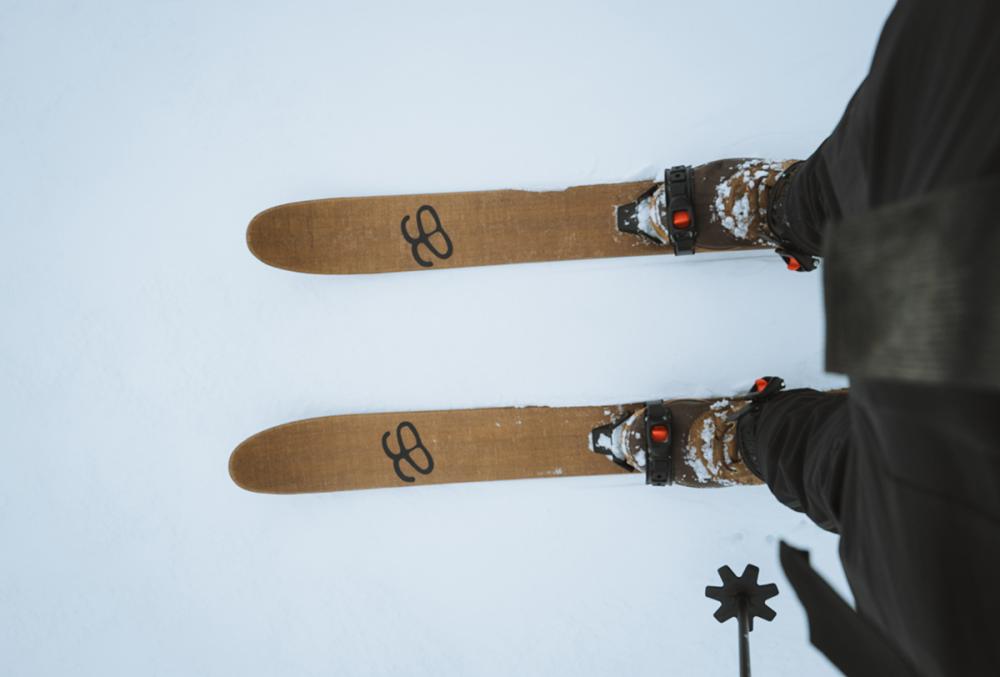
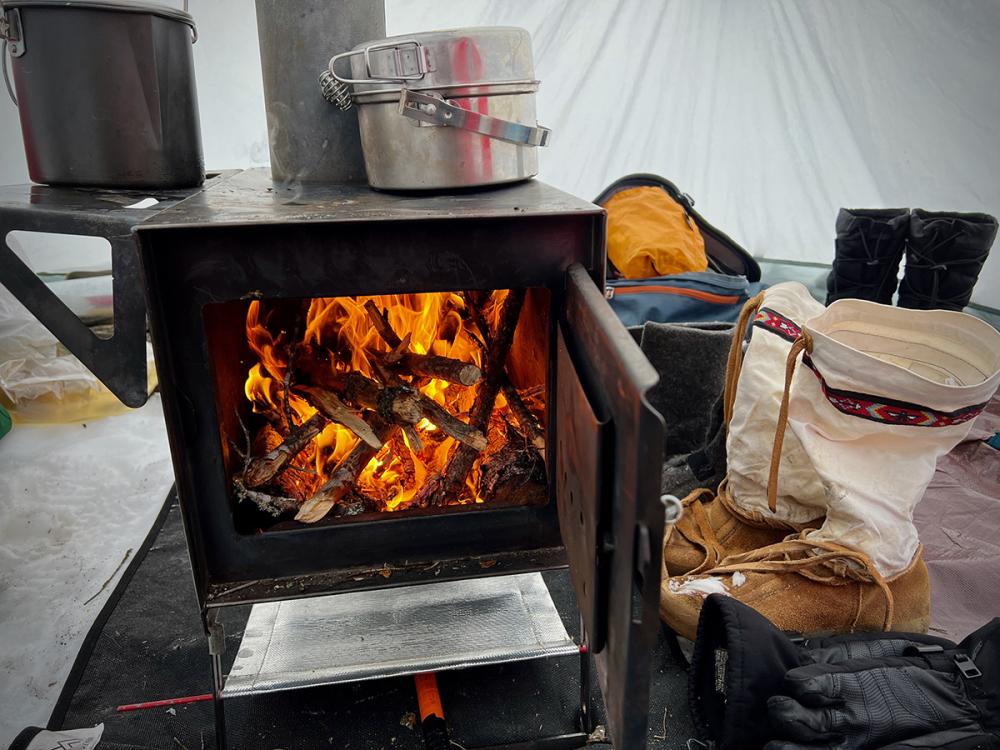
More resources for planning your trip:
Paddle Planner - Interactive Planning Tool
A Quick Camping Trip in the Winter
Winter in the North
Winter Camping: A Joy and a Challenge
Boundary Waters Winter Camping Packing Lists
Northern MN outfitters that offer guide service and rent gear for winter camping, multi-day, or day trips.
- Piragis Northwoods Company, Ely (rents winter camping gear, guide service)
- Cast Outdoors Adventures, Ely (guide service, basecamp)
- Voyageur North Outfitters, Ely (rents ice fishing equipment only)
- Wintergreen Northern Wear, Ely (rents outerwear)
- Sawtooth Outfitters, Tofte (rents winter camping gear)
- University of Duluth RecWell Department, Duluth (rents snowshoes, skate and classic skis, kicksleds)
- Northern Goods, Grand Marais, (rents snowshoes, backcountry skis, and classic skis)
Check out more Boundary Waters Business supporters here.
Get a taste of Paddle Planner with the map below! Visit Paddle Planner for more tools and resources on planning your trip!
